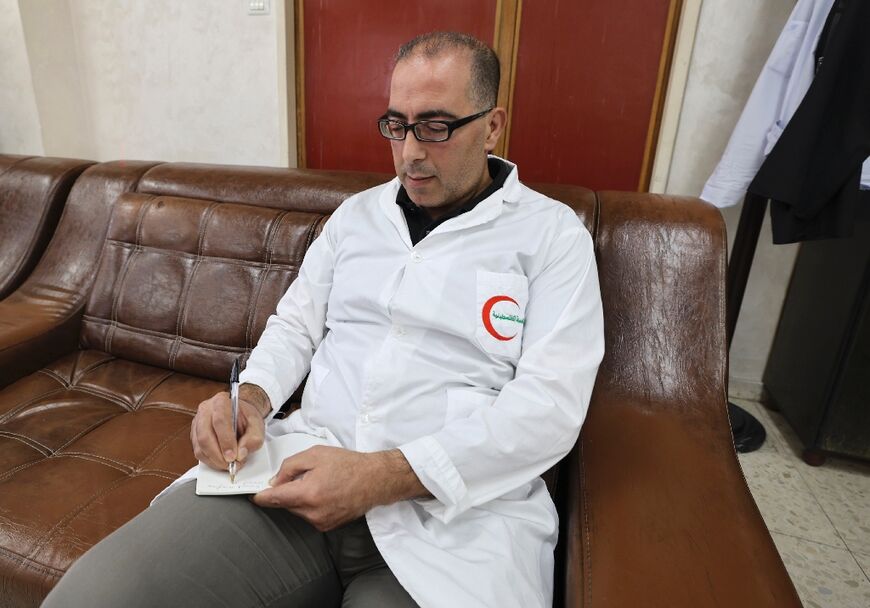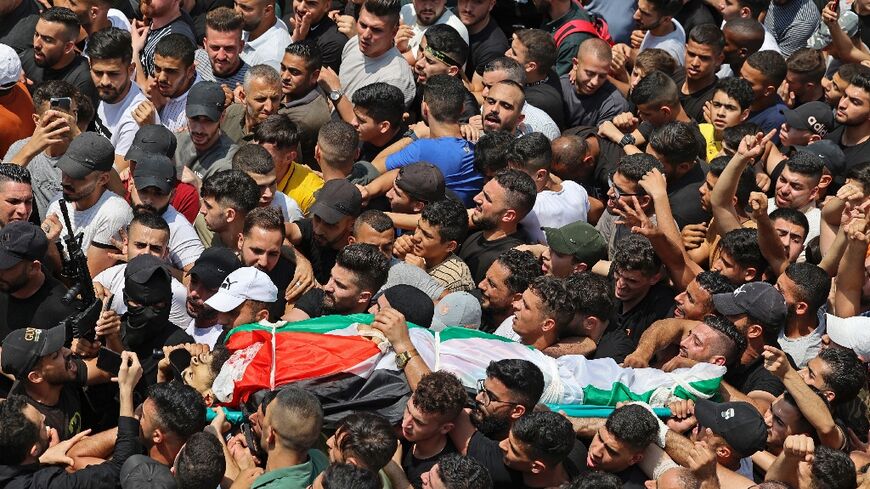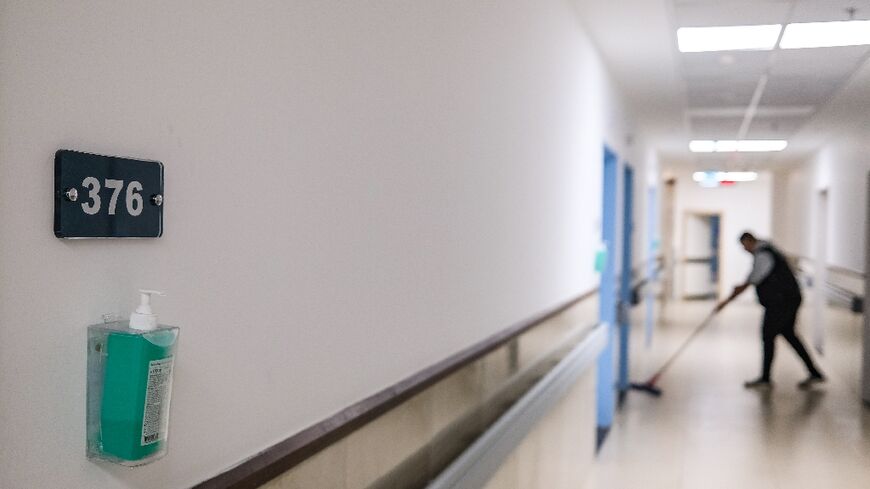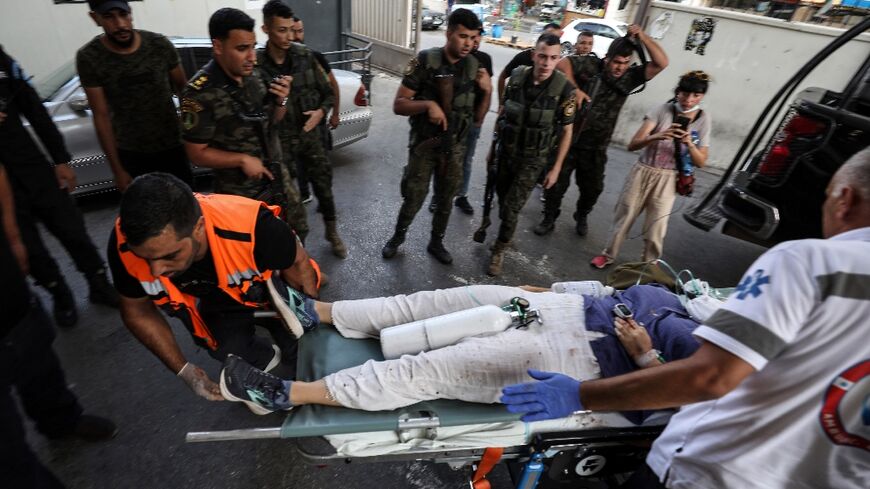West Bank unrest weighs on Palestinian doctors
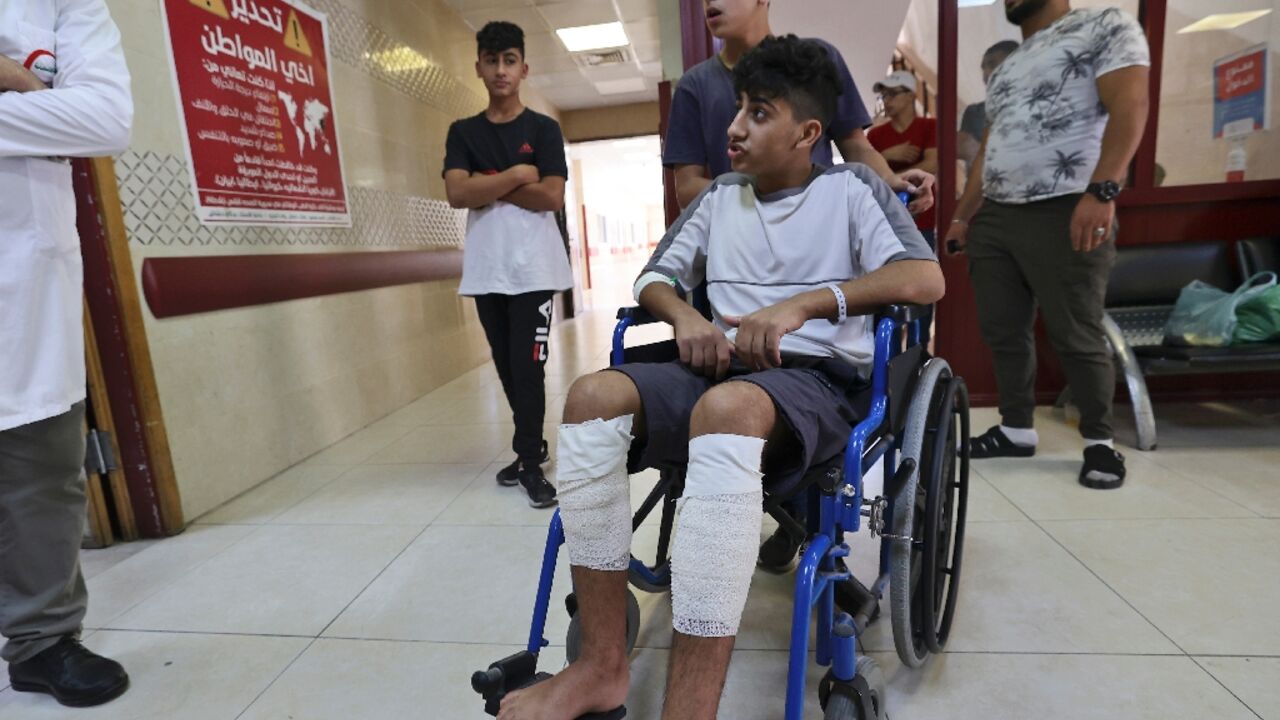
Doctors in the occupied West Bank are struggling to save Palestinians from permanent disability after being shot in an upsurge of violence linked to Israeli raids targeting Palestinian militants.
At Rafidia Surgical Hospital in Nablus, in the northern West Bank, a teenager with bandaged legs was carried up the stairs by another boy.
He had been shot below the knee in overnight clashes between Israeli forces and Palestinian residents of Balata, a refugee camp on the edge of the city.
The 16-year-old, whose mother soon arrived in the emergency room, was the latest Palestinian to be hit in the near daily rounds of gunfire erupting in the northern West Bank.
"There is a lot of pressure on the hospital, as a result of the various injuries and the large amount of injuries," said Dr Fouad Nafaa, head of Rafidia's surgical department.
The spike in violence is tied to raids launched across the West Bank in recent months by Israeli forces, many targeting armed militants in Nablus and the Jenin area further north.
The Israeli military says the often lethal raids are necessary to root out extremists involved in carrying out or planning attacks against its citizens, after a spate of deadly rampages inside the Jewish state earlier this year.
On a single day in August, medics from the Palestinian Red Crescent Society (PRCS) treated 69 patients with gunshot wounds in Nablus after an army raid.
Nablus militant Ibrahim al-Nabulsi was one of four people killed in that raid on August 9.
Many of the wounded were taken to Rafidia, where Nafaa said the team has been receiving "very difficult" cases lately.
- Emergency 'day and night' -
"In terms of the type of weapons used and ammunition used, and in terms of the places they are shot, for example the head, the neck, the abdomen and the chest, the injuries were more serious," said Nafaa.
In Jenin, the director of Ibn Sina Hospital said the scale of casualties is "increasing dramatically".
"It's not easy to deal with many casualties at the same time," said Jani Abu Joukha.
"But we handle (it)... the staff are experts."
He described critical days with some 15 casualties arriving within 15 minutes of one another at the hospital.
Since April, the World Health Organization has been supporting training for medics dealing with mass casualty incidents in the West Bank.
Rik Peeperkorn, WHO's representative in the Palestinian territories, said sudden emergencies put "immense strain on the already fragile health system".
At least 1,380 Palestinians have been shot across the West Bank since the start of last year, in the context of the Israeli-Palestinian conflict, according to data from the UN and PRCS.
More than 40 percent of them were in Nablus and Jenin governorates.
Palestinian-American journalist Shireen Abu Akleh of Al Jazeera was shot dead north of Jenin in May while covering an Israeli raid.
According to the Palestinian health ministry, hospitals are understaffed across all departments due to a chronic funding shortfall.
Maria al-Aqra, the ministry's head of international cooperation, said flare-ups of violence prompt doctors to delay routine operations.
"We live in (a state of) emergency, day and night," she said.
"Our staff do our best, and some of them work three shifts" during emergencies, Aqra added.
- 'Always ready' -
The dangers do not end once the guns fall silent, as patients' wounds can become infected.
Dr Jamal Abu Alkebash, an orthopaedic specialist at Rafidia, said some also risk paralysis after being shot through an artery or a nerve.
"We face a big problem with these injuries. It's the type of bullets used -- explosive bullets," said Alkebash.
"We try to help the patient. However, the wounded end up paralysed, or amputees, disabled or with a number of fractures of various kinds," he explained.
The Israeli military says it uses live fire "after all other options have been exhausted".
As security forces entered the Old City of Nablus on August 9, launching a shoulder-fired missile at a house with Nabulsi inside, the army said "a violent riot" began in the area.
"Dozens of rioters... hurled stones and explosives at the forces, who responded with riot dispersal means and live fire," the military said of the operation, in which no soldiers were wounded.
Israel has occupied the West Bank since its military seized control of the territory from Jordan in the 1967 Six-Day War.
With army raids continuing apace, frequently resulting in the arrest of suspected militants and Palestinian casualties, doctors await the next gunshot wounds.
At Rafidia, bottles of clear intravenous fluid are lined up beside beds divided by mauve curtains in the emergency room.
"We are always ready," said Nafaa. "At any time and at any moment."


